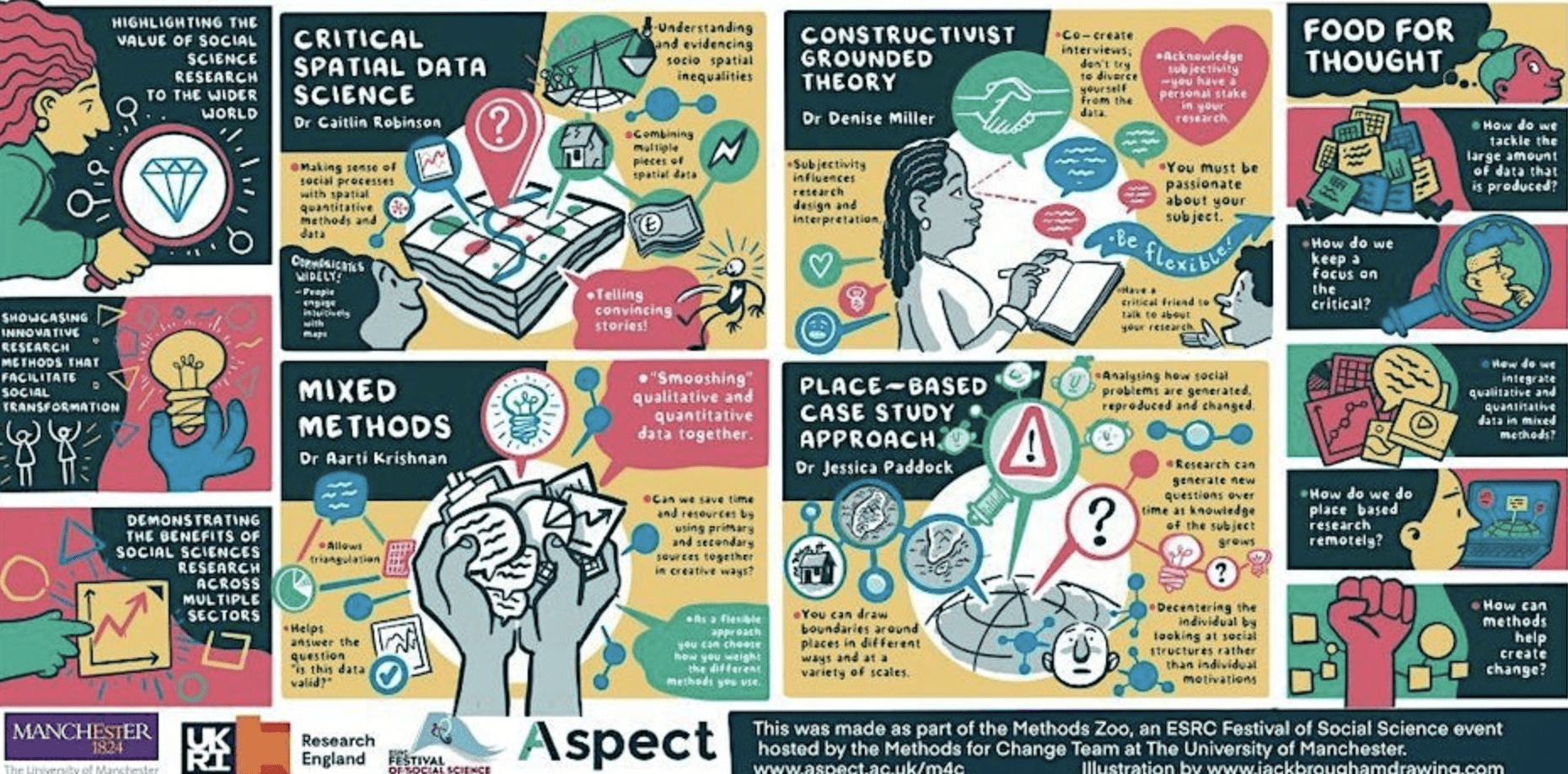Introducing Methods for Change Phase 2
-Alison Browne, Temidayo Eseonu, Magdalena Rodekirchen and Laura Pottinger
Methods for Change Phase 2 kicked off in June 2022 and will take place over 15 months to the conclusion of Phase 2 of the Aspect project. The project is led by Dr Alison Browne (PI) with Dr Laura Pottinger (co-I) with strategic input from Prof Sarah Hall (co-PI) and Amy Barron Phase 1 Research Associate). Methods for Change Phase 2 builds on the success of the Phase 1 ‘How-to Guides’ and highlighting the importance of social science methods within non-academic sectors. Now, we hope to engage more with critical and interpretive approaches to spatial, mixed methods and quantitative methodologies, including social science research methods within interdisciplinary settings. We are also developing a range of training events and pilot projects that support Methods for Change contributors and other social scientists across the Aspect network. Our aim is to support colleagues to tap into the possibilities for non-traditional funding for social science methods entrepreneurship and commercialisation (including Innovate UK Knowledge Transfer Partnerships – KTPs) and encourage the building of partnerships, collaboration and non-academic impacts that will live beyond Phase 2 of the project.
We have two new staff on the project who both started in June 2022. We welcome Dr Temidayo Eseonu and Magdalena Rodekirchen. Dr Temidayo Eseonu completed her PhD in Politics from the University of Manchester. Her research examined how accessing the ‘voice of colour’ through co-creation and acting on suggestions can be one way to achieve racially equitable services. After her PhD, she worked outside of academia on community research projects on a variety of topics that centred the experiential knowledge of communities. Dr Temidayo joined the project as a Research Fellow leading on tasks such as research examining the possibilities and tensions of commercialisation within social sciences, showcasing commercialisation within social sciences, developing training opportunities on entrepreneurial pathways for social sciences and assisting the scaling up of applications for commercialisation funding e.g. Innovate UK.
Magdalena Rodekirchen is currently completing their PhD research on intersectional approaches to nature-society relations, which further develops an interdisciplinary creative methodology called Facet Methodology. Prior to pursuing a PhD, Magdalena worked in international development with a focus on gender, natural resources, and climate finance, collaborating with a range of government, civil society, and business partners. As the Research Associate on the Methods for Change project, Magdalena works with 20 new contributors across the Aspect network to develop accessible How-to Guides and creative outputs on mixed methods, critical quantitative, spatial, and interdisciplinary methodologies. Amongst other responsibilities, Magdalena leads on organising public dissemination workshops and seminars with collaborators from across the Aspect Network. For example, together with the project team they recently secured funds for two events as part of the ESRC Festival of Social Science 2022.
To find out more, please get in touch with the project team methodsforchange@manchester.ac.uk or join us at one of our upcoming events.
Attend one of our online ESRC Festival of Social Science sessions on 9th November by signing up here https://www.eventbrite.co.uk/e/methods-for-change-social-science-methodologies-for-21st-century-problems-tickets-397032443727.
Get involved in our training sessions on social science and humanities led Innovate UK Knowledge Transfer Partnerships projects – more details coming soon!




